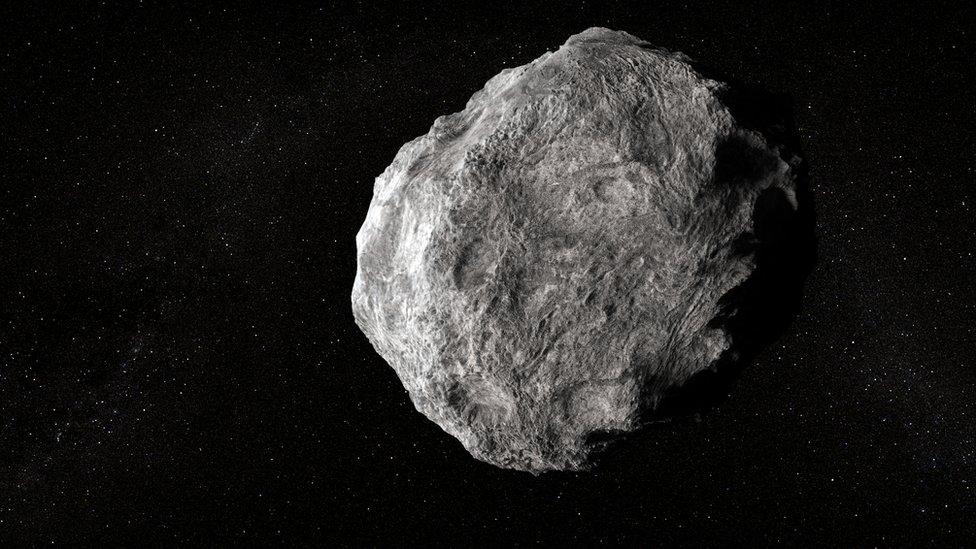Asteroid: Did a massive crash in space help biodiversity on Earth?
- Published
- comments

An asteroid collision is thought to have sparked Earth's mini ice age
A huge spark in biodiversity on Earth may have been started by a massive dust cloud that swept through the ancient solar system according to new research.
The dust, which is thought to have resulted from a violent asteroid collision somewhere between Mars and Jupiter 466 million years ago, is said to have spread throughout the solar system, preventing sunlight from reaching Earth and sending our planet into a mini ice age.
This caused temperatures to fall for at least two million years and life on Earth adapted over time.
A number of the species near the Earth's equator weren't affected by the changes, but those which ended up in the newer colder regions were forced to evolve during the cooling period, sparking an explosion in biodiversity.
As a result, the number of invertebrate animals (creatures without a backbone like giant squid and jellyfish) living in the sea tripled.
The cooling effect of the collision has raised questions about what can be done to tackle global warming.
"In the last decade or so, researchers have discussed different artificial methods to cool the Earth in case of a major climate catastrophe," said Birger Schmitz, a professor of nuclear physics at Lund University in Sweden.
"Our results show for the first time that such dust at times has cooled Earth dramatically, giving hopes that it could be a viable artificial solution."
- Published9 October 2018
- Published27 September 2013
- Published10 September 2019
